On the Origins of Morality
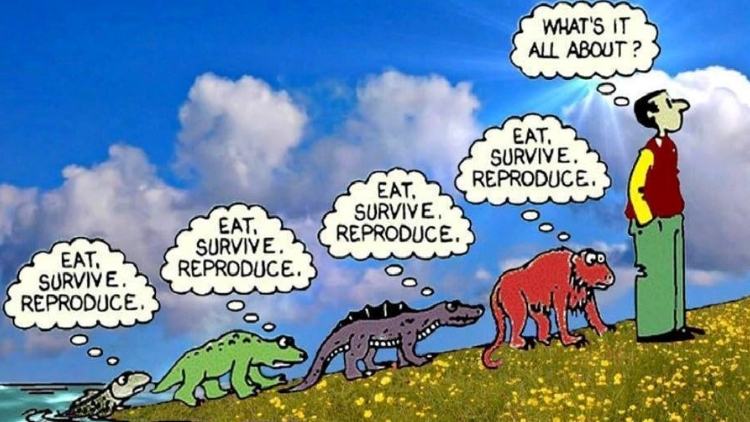
Featured image: At what stage of evolution did morality emerge, if ever? (Patrick Hardin/Nat. Hist./ Source)
We usually understand morality as something self-evident—an institution which keeps the fabric of cooperative society intact by imagining mutual ground. Show kindness, compassion, selflessness, generosity … Be good. Be just. Do this. Don’t do that. Isn’t this obvious? No! These statements represent surface-level rules: convenient simplifications. Morality’s existence is a social construct for which we have to assume an existence.
‘Surely, there is something objective about morality?’ You may ask. To understand why this assumption is dubious we have to go back to where it all began.
Bird got to fly;
Man got to sit and wonder, 'Why, why, why?'
Tiger got to sleep,
Bird got to land;
Man got to tell himself he understand.
— from Cat’s Cradle, Kurt Vonnegut
Ethics: a complicated business
Humankind has spent millennia trying to establish what’s right and what’s wrong. Morality’s esoteric nature is made obvious by the fact we can’t seem to agree on what the rules are: what it means to be moral varies between societies and perpetually mutates between ages.
As soon as we spell out morality’s anatomy in the tongue of philosophy we disable our efforts with absurdities, contradictions, and thought experiments. Deontological theories of ethics—of rule-based duties to maxims—are compelling until we don’t allow lying in any situation. Utilitarianism is appealing and then we find disgusting ways to maximise pleasure. Virtue ethics—which predicates morality not on action but on one’s character, fundamental virtues, and the right reasons for doing certain things—seems to permit moral relativism since ‘the right reasons for doing certain things’ change with context.

Christopher Hitchens signals for waterboarding to stop in a torture experiment he consented to. For bona fide torture situations how do we codify that torture is bad? It feels like a bad thing (c.f. sentimentalism); 'bad' people do it (c.f. virtue ethics); people rationally don't want to be tortured (c.f. deontology); and there are negative consequences to carrying it out (c.f. utilitarianism). Nonetheless, it could be justifiable in some settings. Do we follow moral realism, according to which there are objective, mind-independent truths about torture? Perhaps ethics is brute and irreducible, naturally or divinely; torture just is immoral. Alternatively, moral claims about torture (e.g. 'Torture is bad in all circumstances') latch onto basic explanations ('because it causes pain') in a naturalistic way (as per science). But does it make sense to equate moral language to physical properties? Maybe moral claims are separate from the world through the linguistic trappings of expressivist quasi-realism, by which moral truths are contingent on evaluative attitudes. But in what possible world could unprovoked and unjustified pain be permissible just because I have a positive attitude towards it? Is torture wrong? Choose wisely and be prepared to defend yourself to the very end! (Vanity Fair)
None of this may seem like a problem on a practical level but the uncertainty is troubling when you think deeply enough about it. Without something objective to bind us we will always disagree, forever in opposition on an amorphous cloud of scepticism. Already a lack of objectivity has legitimised the likes of slavery, racism, homophobia, and sexism—what unmanifested immorality, condoned now, will be revealed as wicked in the future?
Perhaps science, as a probative tool and an instrument of reason, can help us locate morality’s beginnings through one if its most-famous theories.
Evolution
Rather arrogantly, humankind, as a species, has put itself on a pedestal.
In many ways we are remarkable. Self-aware, rational, intelligent—such gifts have enabled us to envision morality and hold moral beliefs, which other animals cannot do, and deliberate and act on them. However, the likely truth—at least scientifically—is that we are animals that share a history with the natural world. Indeed, according to Charles Darwin, ‘the difference in mind between man and the higher animals, great as it is, is certainly one of degree and not of kind.’ So when did morality commence?
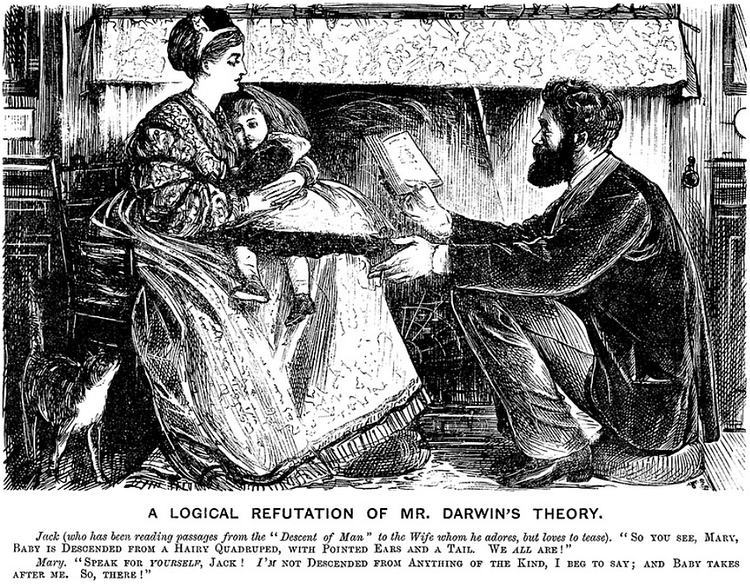
Religious belief is popular today but it was omnipresent in the past. When, in the 19th century, Darwin's theory of evolution arrived philosophy was offered an awakening, if we can call it that. But it presented many a quandary to people who had believed that humans are special and incomparable to other creatures. In this drawing for Punch, a British-based satire magazine, published in April 1871, a middle-class family is depicted: the father reads the work of Charles Darwin to the mother, who indignantly rejects it. The scene reveals the affront to people's values caused by the possible truth of evolution felt by people at the time. (Wellcome Library London)
Part of this superiority complex seems to stem from religion. Religious belief is predicated on doctrines, many of which stipulate that humans have been given this planet. Specifically, written into the scripture is the notion of dominion, whereby humans have a right to establish control over nature, as sanctioned by a god or some other religious order. Humankind is unique in the eyes of the Christian God, who divinely created us with material bodies and immaterial souls, which sets us apart from the animal world. ‘Let us make man in our image, in our likeness’ (Genesis 1:26).
Following the publication of On the Origin of Species Darwin was widely criticised, not least because his work pit science against religion. Whereas in the religious view the world was teleologically designed with intrinsic purpose for humans, in the scientific view the idea of there being no purpose at all was now being properly examined. Thus animals are there for us—we are not the same as them—creating a dichotomy in moral worth and precluding animals from many moral considerations. Such views pervaded common thought and were held by scientific kingpins such as Isaac Newton prior to the release of Darwin’s major works.
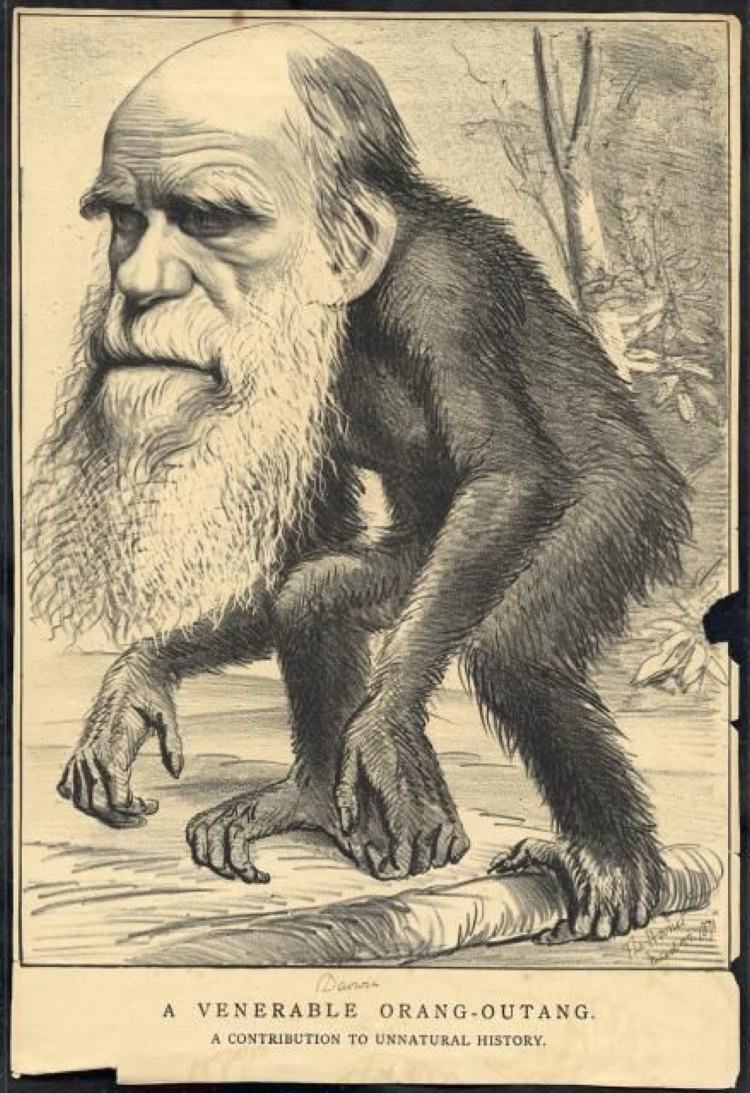
This caricature was drawn for satirical magazine The Hornet in 1871. Similar attacks were made across the media after Darwin first published On the Origin of Species in 1859, using Darwin's own idea that we descended from animals against him. While the majority of scientists now converge on the theory of evolution, at the time communities, inside and outside science, were outraged. Darwin ended up buckling to the pressure and adapted his theory of evolution to be more conservative in subsequent editions of his book. Nonetheless, all this attention instilled enthusiasm and engendered a wider interest in his work; and, eventually, he became one of the most-famous naturalists in the scientific world. Public attention duly shifted as people finally started to pay respect to his earlier work. The theory of evolution upturned society's religious outlook as people were forced to acknowledge that humans could have developed from lowly animals. A divine understanding of the natural world would be revamped. See here for a great collection of other caricatures of Darwin drawn for magazines in this era of ridicule. (The Hornet)
Darwinian nihilism
There is no doubt that we are exceptional creatures. However, we should humble ourselves, for there is doubt that we display genuine moral capabilities. The building blocks of our nature are likely traceable to a common history with ‘lower’ animals. This threatens the idea of our being special by poisoning our fictionalised moral realm with the callous natural order of things. How would the random disorder of natural selection be coated with the language of morality? This is the major challenge for those who believe evolution and morality to coexist.
This conundrum deals an alarming possibility to morality: that, because we came to be Homo Sapiens naturally, we fundamentally lack moral capacity. This position—namely, Darwinian nihilism—is one of two opposing answers that falls out of the ‘placement problem’. The other, which would substantiate morality’s existence, logically speaking, is supernaturalism; but many would take this as a wild solution, so to speak; they want morality to fit within a scientific understanding, too, and hence not break the laws of nature. Expressed in standard form, this argument goes as follows:
Premise 1: The human race is a product of evolution.
Premise 2: If moral behaviour exists, it is unnatural because evolution is a natural process.
Premise 3: Moral behaviour exists.
Conclusion: Moral behaviour is unnatural.
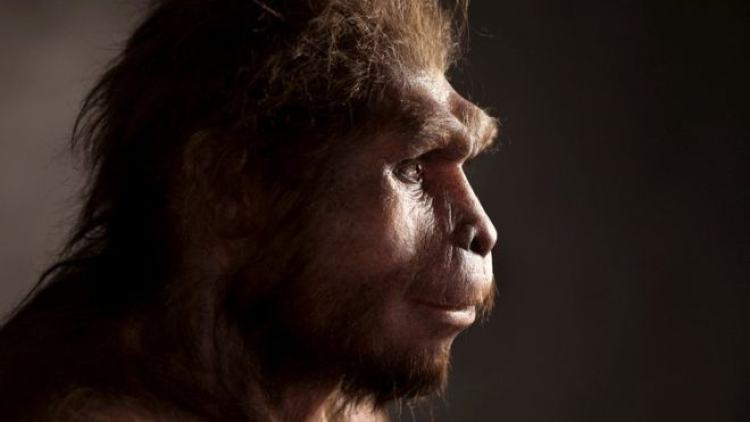
Lo, today's animal kingdom is filled with all kinds of wonderful fauna whose genetic similarity to us is striking. Even animals such as mice possess remarkably similar genetic material. The greatest likeness is borne by apes, with whom we share close to 100 % of our DNA. A few million years after we left our ape cousins behind, as our kind continued to evolve, arose Homo erectus—our ancestors—who were the first to migrate out of Africa. They coexisted with sabre-toothed tigers, stood upright, and they might have been the first to use tools and cook food. Over a million years later human race then emerged as Homo sapiens, outlasting our cousins, the Neanderthals, who were to become extinct some 40,000 years ago. (Science Photo Library)
Darwinian nihilists have put forward many different perspectives. Richard Dawkins, for example, argues that our moral conscience can be explained via the ‘selfish gene’, which ‘wants’ to spread itself and thus drives evolutionary development. Therefore, behaviour such as altruism (e.g. grooming) is fundamentally selfish and amoral (e.g. because it is intended to be reciprocated).
In contrast, while Darwin believed there to be no ontological chasm between humans and non-human animals (‘the continuity view’), he certainly wasn’t committed to nihilism, despite it being a natural by-product of his theory. In fact, he supported the idea of an evolutionarily born ‘moral sense’.
Like the eye, morality could have grown in ‘numerous gradations from a simple and imperfect’ type to a complex type. First, animals acquire social instincts, which are endowed to them on a group level. These are then transfigured into moral conscience through memory and self-reflection and subsequently reinforced by language. And, finally, these traits are furnished into behavioural habits by further evolutionary pressures.
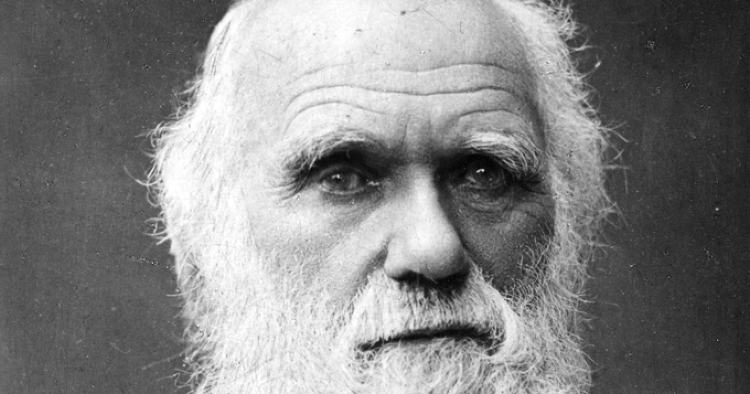
'A moral being is one who is capable of comparing his past and future actions or motives, and of approving or disapproving of them. We have no reason to suppose that any of the lower animals have this capacity.' — Charles Darwin (pictured), The Descent of Man, and Selection in Relation to Sex
But Darwin’s position appears premature without adequate philosophy to accompany it. He did not do enough to meaningfully distinguish humankind from vehicles of genetic material who simply carried sophisticated primal desires. While we’re self-aware, rational, and intelligent beings who feel things more deeply and complexly than non-human animals, we’re still just organisms who are disposed to holding some beliefs over others.
As G.E. Moore described this problem in Principia Ethica, it would be a ‘naturalistic fallacy’ to reduce moral properties (e.g. bad) to natural properties of the world (e.g. pain). What ought to be isn’t what is (David Hume). Any act we ordinarily take to be morally true—of ‘compassion’, of ‘kindness’, ‘of generosity’, of ‘selflessness’—is rooted in an amoral history of death and disease; of preservation and proliferation; of survival, base instinct, and competition; of the absence of purpose; of nature ‘red in tooth and claw’.
Equipped with descriptions of an indifferent natural world, the best we can hope for is scepticism (Pyrrho, Friedrich Nietzsche, J.L. Mackie).
Darwinian nihilism, as a sceptical position, postulates that we can never obtain truth in our moral beliefs, even purely rational ones, because the thesis of moral realism is false: moral knowledge is impossible because our beliefs aren’t truth-apt (true or false). And any attempt to remedy the situation will fail, something which applies even to seemingly obvious beliefs, such as ‘Harming cats is wrong’ and ‘Murdering babies is impermissible’.
Or is there hope to be found elsewhere?
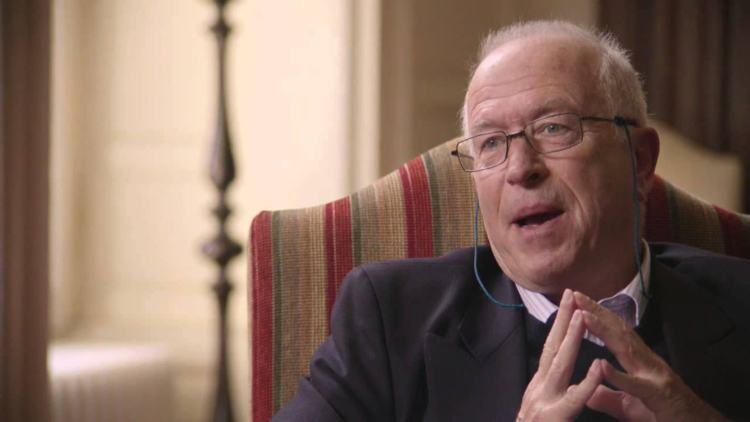
If the thesis of moral realism—that there are objective moral truths—is false, the door would still be open to anti-realism (David Hume, Sharon Street) and quasi-realism (Simon Blackburn). Blackburn (pictured), developed the idea that morality is born in emotional attitudes projected onto the world. In other words, sentences describing features of the world (linguistically expressed, assertoric statements) cannot be morally true or false by themselves, as logical positivists would believe, non-cognitive mental states beneath them can render them true or false. But, in a quasi-sense, there is a realist component to morality. Thus, since attitudes play apart in bringing it to life, evolution might have had a tremendous role in shaping the fabric of our emotions and, therefore, morality (e.g. of evaluative attitudes of disgust toward incest and cannibalism), undermining Premise 2 (that morality is unnatural) in the argument above. But it would be remarkable if the pressures of evolution guided the development of our species to moral behaviours. So, perhaps, it is better to explain nature on the one hand and morality on the other: if beasts which don't know better engage in cannibalism and infanticide, we cannot call them immoral (Steven Pinker) or the same would be true in our history. (Geraint Lewis/Eyevine)
Ethical naturalism
Can the morally bleak outlook of nihilists be defeated?
Many morally optimistic neo-Darwinians—scientists (such as Frans de Waal) and philosophers (such as Daniel Dennett)—have maintained that acting morally isn’t inconsistent with acting naturally (undermining Premise 2 above). They say that morality grew out of the natural world and that there is no reason why the fact of natural selection for reproductive optima would undercut morality. In fact, they say it is a ‘genetic fallacy’ to think so.
Part of their tactic is to demonstrate relevant social behaviour amongst non-human animals with whom we share a biological blueprint with, to test the hypothesis that our morality arose from similar origins. The behaviour observed doesn’t have to reach the moral capacity of humans but it should exhibit the rudiments of what is usually considered moral in humans—the precursors of morality (‘proto-morality’).
Their favourite move is to espouse Frans de Waal’s ‘veneer theory’, according to which morality is the application of reason above evolution’s raw materials. This moral leap occurred after a sharp and discontinuous dichotomy in our critical faculties, allowing us to formulate a moral culture. Hence, whereas nature is blindly competitive and gave us similar origins to non-human animals, morality is a cultural overlay which masks our otherwise-animalistic nature.
Frans de Waal has built on much of Charles Darwin's anecdotal evidence with scientific investigations into proto-morality. He has provided, for example, experimental evidence of 'empathy' in primates, where gestures of consolation were observed more frequently after instances of aggression. In other studies chimpanzees have been shown to carry a sense of justice: chimps punished one another after having their food stolen. During the most-famous de Waal experiment monkeys reacted with indignancy to inequality: they were only happy to have cucumber until their friend got grapes—not fair!
But there are numerous issues with veneer theories. For one, it treats humans are autonomous agents who can act above their animalistic desires. Contentiously, this implies that non-human animals are not autonomous. Culture could just be a conglomeration of instincts, seasoned with reason. Do our critical faculties really make us that different?
Furthermore, as argued by Christine Korsgaard, since veneer theory is meant to be an application of practical reason, it is assumed we only need to rationally pursue our best interests in our notions of morality; but, empirically, we know we display all kinds of contradictive behaviour in relation to this assumption. For example, sports fans seek things like meaning, harmony, community, and hope from allegiance to their teams against their own happiness. So how can veneer theory have a basis for morality when there are so many more things to consider in human wellbeing than our rational orchestrations?
There is hope in ethical naturalism. We are self-aware, rational, and intelligent and culture may be emergent for us. But we require more evidence from controlled studies and more philosophy to overcome the now-prevalent idea that we are amoral at our very foundations.
Hmm.
Illusionism or just more work to do?
In summary, philosophy and language struggle to yield compelling theory of ethics. In lieu of objectivity we can only suspend abstract words and relations, in moral terms, above a natural world. Morality is a construction. ‘Selflessness’, ‘kindness’, ‘benevolence’, ‘compassion’, ‘empathy’—words to shade nuance into innate instincts. But it may exist.
However, in light of Darwinism, the outlook is bleak. As animals we are forced to face the prospect of nihilism. Morality, in this view, is unobtainable—a real possibility which is conveniently cloaked by the instrumental illusions of a ‘superior’ species which anoints itself king.
Are God and Nature then at strife,
That Nature lends such evil dreams?
So careful of the type she seems,
So careless of the single life;
Who trusted God was love indeed
And love Creation's final law
Tho' Nature, red in tooth and claw
With ravine, shriek'd against his creed
Alfred Tennyson’s famous words reflect a growing Christian unease during the mid-19th century that God’s love and nature’s violence were irreconcilable.
